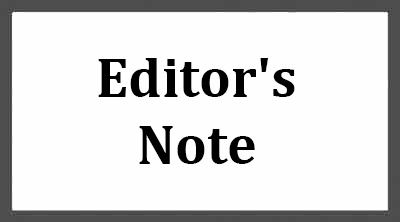International Women’s Day left behind mixed feelings. Heartwarming was this statement: “I didn’t climb the Everest with an amputated leg. I did it all with my heart and mind,” said Arunima Sinha on becoming the first female amputee to do so. The message is clear: look at your strengths and not shortcomings.

Signals from the developed world were mixed. Charlotte Valeur, the new chair of UK’s very influential Institute of Directors accused Britain’s biggest companies of stalling the entry of female and ethnic minority directors saying there weren’t enough qualified people in this group. “Do we really think that’s difficult? It’s a lie. It’s not difficult,” she said. In one year the percentage of women on FTSE 250 company boards increased only marginally — from 22.8 to 23.7 per cent; with FTSE 100 companies performing equally dismally, going up from 27.7 to 29 per cent. In Italy, representatives of a far-right political group came under fire from women for an explicitly sexist leaflet, while talking about women’s “natural role” being to “support life and the family”. Even though cliched and patronising, nothing wrong in it, had the pamphlet stopped at that. But it added this “natural role of women” was harmed by “those who claim self-determination that arouses rancorous attitudes towards men!” Predictably, three female ministers in the Government jointly condemned this stance.
But it was really the New Zealand Prime Minister Jacinda Ardern who won hearts and minds across the world through her compassionate, and yet firm, response to the terror attack on two mosques in Christchurch, New Zealand, that gunned down 50 worshippers. In a world where machismo is considered a hallmark of good leadership, she stood up and said unequivocally: “We represent diversity, kindness, compassion, and are a home for those who share our values, and refuge for those who need it. You may have chosen us, but we utterly reject and condemn you.” Taking a cue from her, New Zealanders came out in droves to support the Muslim community, and on social media smitten fans from across the world called her “my hero, a pure soul, awesome leader” and so on.
In India, women’s rights and the injustice meted out to them in a patriarchal society, that grandiosely put women on the pedestal as Sita or Durga and other goddesses, but harassed, abused and even burnt them for dowry, came into sharper focus after the Emergency. It was a dark era when human rights and civil liberties were crushed and as India reawakened to redefine these, women’s rights and discrimination against them were readdressed. Forty-two years later, we’ve made progress, but how much can be judged by your propensity to see the glass as half full or half empty.
The push for legal reforms to safeguard women’s rights, cutting across religions and communities has yielded results. A Muslim man can no longer say Talaq three times and discard his wife. Thanks to the Supreme Court, women of all ages can now visit the Sabarimala temple. But while these hard-won battles taste sweet, a lot more needs to be done for women from disadvantaged sections of our society.
Rotary itself began late enough in opening its membership to women in 1987, and at the intervention of the US Supreme Court. We should be proud that it was an Indian Rotary Club — RC Ahmedabad — that proposed way back in 1950… yes, 1950, that “male” be deleted from the Standard Rotary Club Constitution, but this was rejected by the CoL at the 1950 Detroit Convention. Attempts continued and in 1977, an American club defied this diktat and admitted women members, only to be terminated! Ten years later, this was overturned by the US apex court and now, to the credit of senior RI leadership, a concerted effort is being made to get more women members.
So you see… the wheel does turn!
Rasheeda Bhagat





